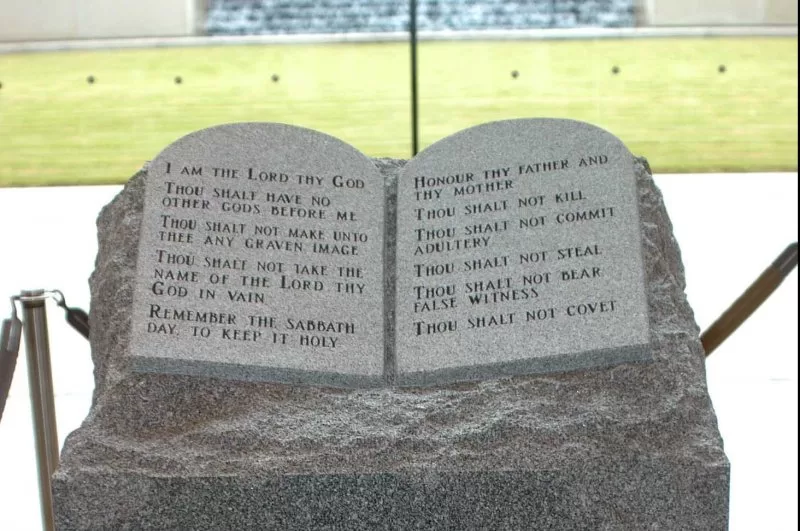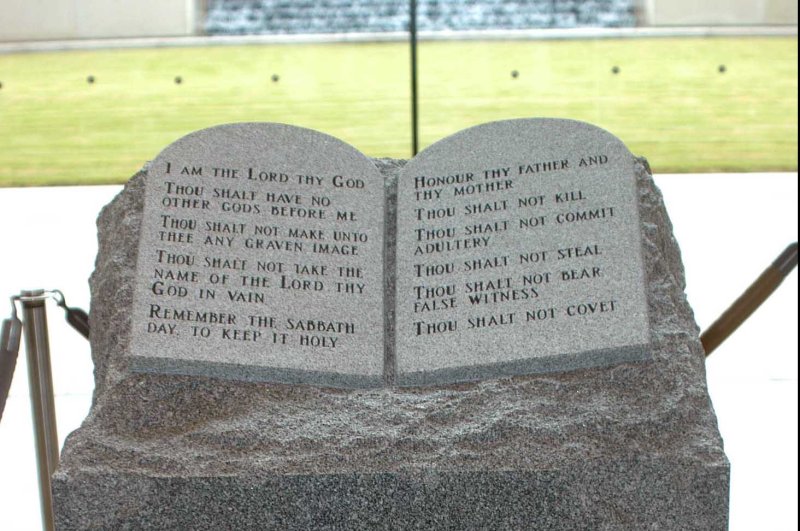More than a dozen other states have attempted to implement laws promoting the Ten Commandments in public schools. File Photo by Morris Abernathy UPI |
License PhotoJuly 20 (UPI) — A new law requiring the Ten Commandments to be displayed in all public school classrooms in Louisiana will not be implemented until mid-November, according to a Friday agreement.
An interfaith family group filed a lawsuit challenging HB 71, which Republican Gov. Jeff Landry signed last month. The filing argued the law was unconstitutional and violated the separation of church and state.
The defendants, which include the Louisiana State Board of Elementary and Secondary Education, agreed to postpone enforcement of the law until Nov. 15 to allow time for a trial and decision.
The agreement also stated education officials must not “promulgate advice, rules, or regulations regarding proper implementation of the challenged statute,” during that time.
U.S. District Court Judge John deGravelles plans to set a hearing for Sept. 30 and to reach a decision by mid-November.
Louisiana Attorney General spokesperson Lester Duhé said the Jan. 1 deadline for all schools to abide by the law still applies pending the outcome of the trial.
HB 71, sponsored by Republican state Rep. Dodie Horton, requires all public schools to display the Ten Commandments in every classroom on “a poster or framed document that is at least 11 inches by 14 inches.”
The law does not specify what would happen if a school doesn’t comply. The posters were supposed to be financed by private donations, rather than state dollars.
The families who filed the suit — who are secular, Jewish, Christian and Unitarian Universalist — argued the law also violates their children’s First Amendment rights and constitute religious coercion.
“Permanently posting the Ten Commandments in every Louisiana public school classroom — rendering them unavoidable — unconstitutionally pressures students into religious observance, veneration and adoption of the state’s favored religious scripture,” the suit read.
“It also sends the harmful and religiously divisive message that students who do not subscribe to the Ten Commandments — or, more precisely, to the specific version of the Ten Commandments that H.B. 71 requires schools to display — do not belong in their own school community and should refrain from expressing any faith practices or beliefs that are not aligned with the state’s religious preferences.”
Dodie argued the law isn’t about promoting a particular religion, rather “it’s teaching a moral code.”
The law states the Ten Commandments reflect “the understanding of the founders of our nation with respect to the necessity of civic morality to a functional self-government.”
Landry, at the bill’s signing said, “if you want to respect the rule of law, you’ve got to start from the original law given, which was Moses.”
Louisiana is not the first state to introduce a Ten Commandments Law. The Kentucky legislature in 1978 passed a bill requiring all public schools to display the religious text, but the U.S. Supreme Court struck it down in 1980 in a 5-4 decision.
Arizona lawmakers this year passed a bill that would have added the Ten Commandments to a list of historical documents that “a teacher or administrator in any school in this state may read or post in any school building,” but Gov. Katie Hobbs vetoed the measure.
“Not only do I have serious concerns about the constitutionality of this legislation, it is also unnecessary,” Hobbs wrote.

